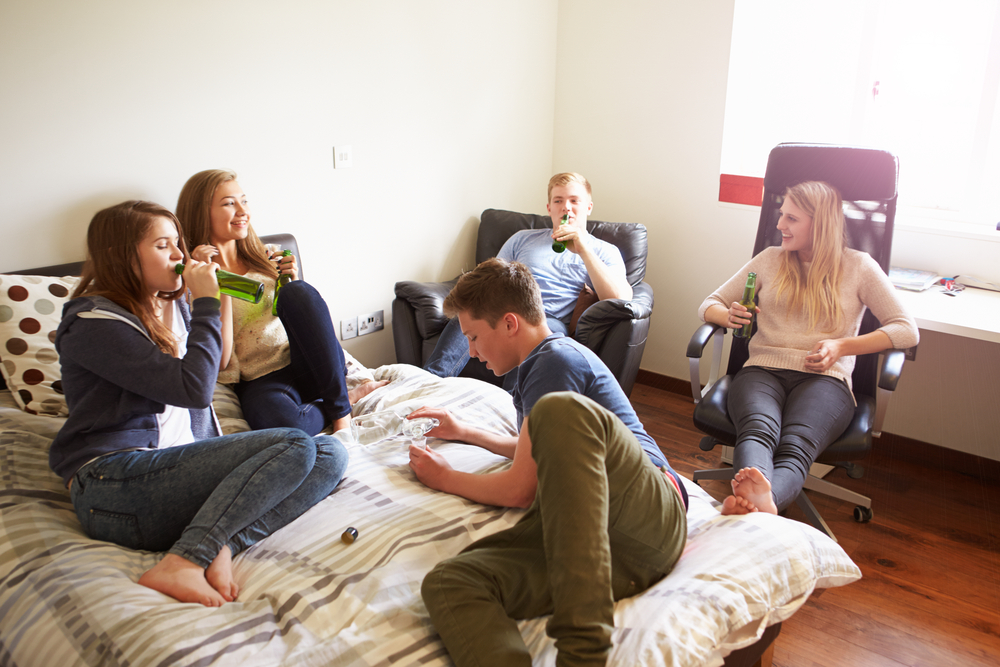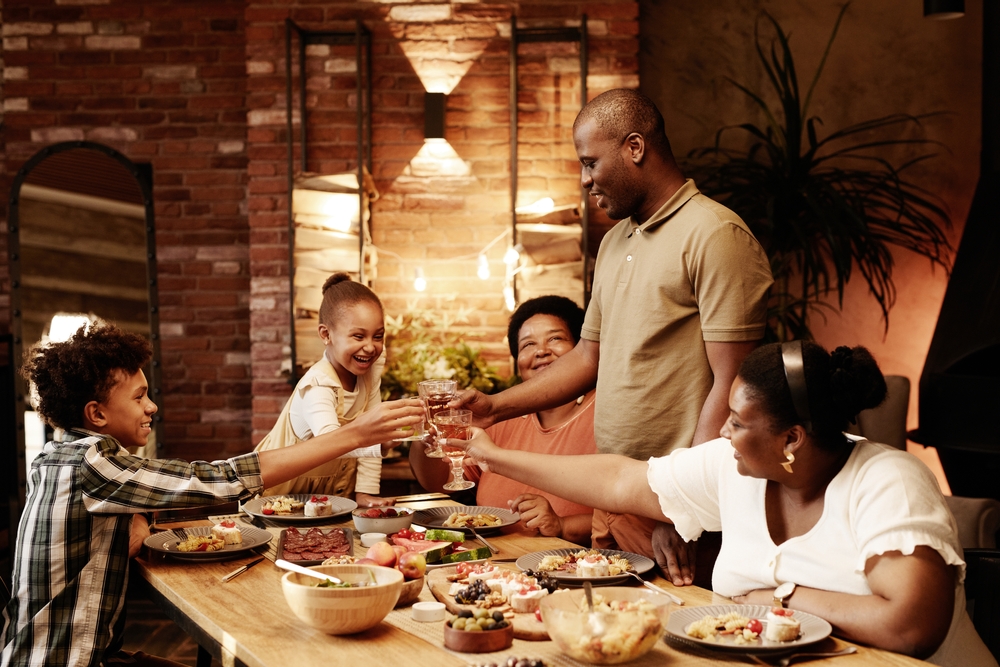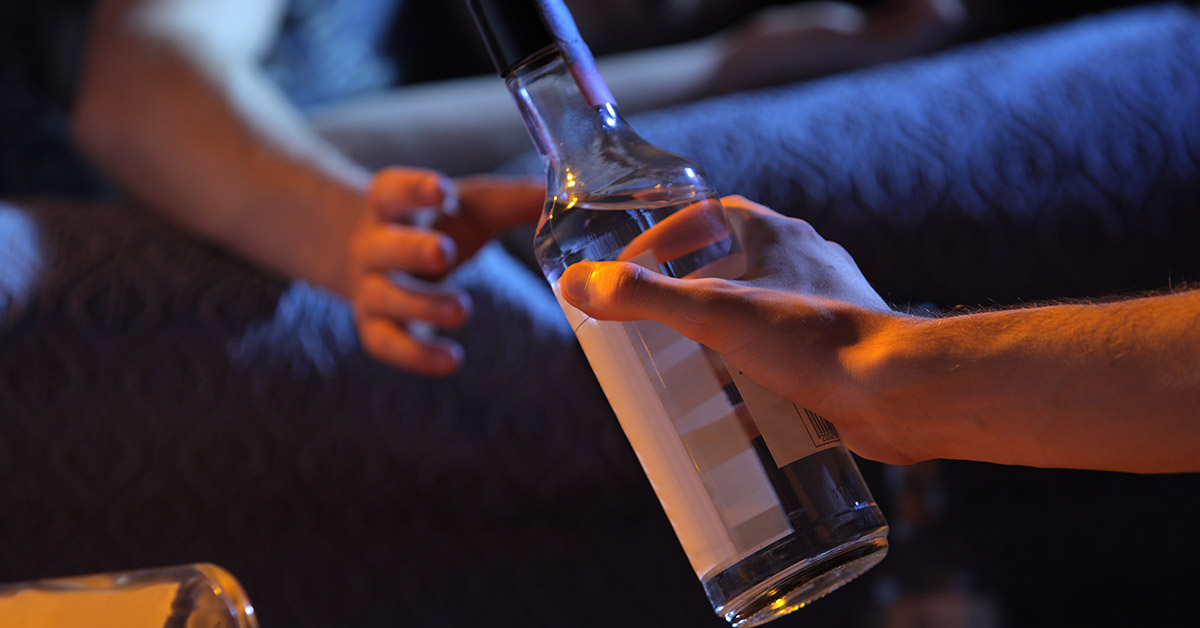“Drink responsibly” may not be the best approach to teenage alcohol consumption. Underage drinking is a serious health issue in the United States and all over the world. Its consequences can go beyond the individuals. People around them can directly or indirectly be affected by the result, whether it’s property damage, injuries, aggression, violence, and deaths. Therefore, many parents want to educate their children about navigating the dangers of alcohol. But recent research indicates a common approach may be having the opposite effect.
The rates of teen binge drinking

According to statistics from the National Institute on Alcohol Abuse and Alcoholism, youths drink less often than adults. However, when they do drink, they consume much more. The commonality of binge drinking alongside teenage alcohol consumption makes the risks even higher. Unfortunately, earlier alcohol use is linked with a higher likelihood of related consequences. And even more troubling, binge-drinking becomes more likely among older teens. Therefore, experts encourage parents to implement prevention strategies before this kind of escalation.
“Teaching how to drink”

However, many common strategies are proven to be ineffective. “There was this long history of people thinking that if you taught your kids how to drink, then they wouldn’t have problems with drinking,” says Lindsay Squeglia, a researcher at Medical University of South Carolina, to National Geographic. “Research over the past couple of decades has really shown that is not true.”
Do as I say, not as I do

Research actually indicates parents’ behavorial and attitude toward alcohol has the largest influence over teen drinking, and not necessarily their words. If they have strong boundaries and model responsible drinking, it’s more likely their kids will do the same. “Parents have a very, very big influence on children’s attitudes” toward alcohol, says Amelia Arria, a researcher at the University of Maryland School of Public Health. “Your voice really does matter.”
“Just a sip won’t hurt”

Some parents believe that introducing their teenagers to alcohol in small amounts in controlled settings will lead to less often and more responsible consumption. However, multiple studies show teenagers whose parents allow it tend to drink more often and less frequently compared to those whose parents prohibit it. Additionally, they will drink at home with parents present, and outside with no adult supervision.
What about other cultures?

These statistics remain true in cultures where teen drinking is acceptable. For instance, Euro News reports that most European countries’ heavy episodic drinking rates are higher among adolescents than adults, with the highest rates in Denmark where the legal drinking age is 16. “When parents allow their kids to drink, their kids end up drinking in all kinds of contexts more heavily,” says Rutger Engels, a researcher at Erasmus University Rotterdam. “It’s related to norm setting.”
Hold off teenage alcohol consumption

Therefore, many experts recommend parents telling teenagers to abstain until a certain age, just as they would tell them to abstain from driving without a license. This teaches that drinking is an event for adults that requires responsibility and boundaries. Despite popular conception, there are proven benefits to holding off teen drinking. However, parents should also limit their drinking in front of their kids because that normalizes the behavior to them.
The health hazards of teen drinking

Even teenagers who “drink responsibly” can suffer from alcohol consumption. During these years, their brains are still developing, particularly in the frontal cortex that controls executive function. That is what lets people make plans, prioritize, carry out tasks, and develop skills regarding long-term forethought, problem-solving, attention spans, and impulse control. Drinking while the brain is still fine-tuning can lead to issues later on, including a higher risk of alcoholism. Alcohol can also cripple social skills and become a crutch, increasing the risk of needing alcohol to navigate social situations for the rest of their lives.
“Alcohol as the answer to life’s problems…”

“When the brain is exposed to the ongoing presence of a substance, especially something like alcohol, that is going to affect a variety of areas in the brain,” says Michael Weaver. He is the medical director of the Center for Neurobehavioral Research on Addiction at UTHealth Houston. “Those processes start to break down, and they become more focused on alcohol as the answer to life’s problems. You lose the benefit of problem-solving, thinking about the consequences, and the alternatives that lead to maturity.”
How to talk to your children about alcohol

Even if you plan on telling your teenagers to wait to drink, start the conversation about alcohol at a young age. The American Academy of Pediatrics recommends talking when they are age 9 to help shape their perspective before adolescence. Find the right moment to talk, during quiet moments when everyone is calm and not distracted. Then bring up the subject in a non-judgmental way. Don’t condemn all people who drink; instead listen to their perspective on alcohol and what their friends say about it. Ask how they feel when they are around drunk people. Kids appreciate honesty when it comes to tough conversations, so consider sharing your own experiences with drinking and interacting with others who drink.
Normalize not drinking

Teens may see their peers and characters in TV shows use alcohol reguarly, so remind them frequently it’s perfectly normal not to drink. In fact, surveys show that most teens abstain during high school. It’s not a rite of passage all teens must undergo. Set clear expectations and guidelines according to their age, and ensure they understand the rules are meant to protect them because you care about them.
Finally, become someone they can trust and feel safe talking to. Make a plan to pick them up, no questions asked, if they find themselves in a scenario where they or others are drinking. Wait until they recover before discussing the issue with them. You can show you are disappointed but don’t deride or shame. Instead, remain calm, loving, and supportive throughout.

